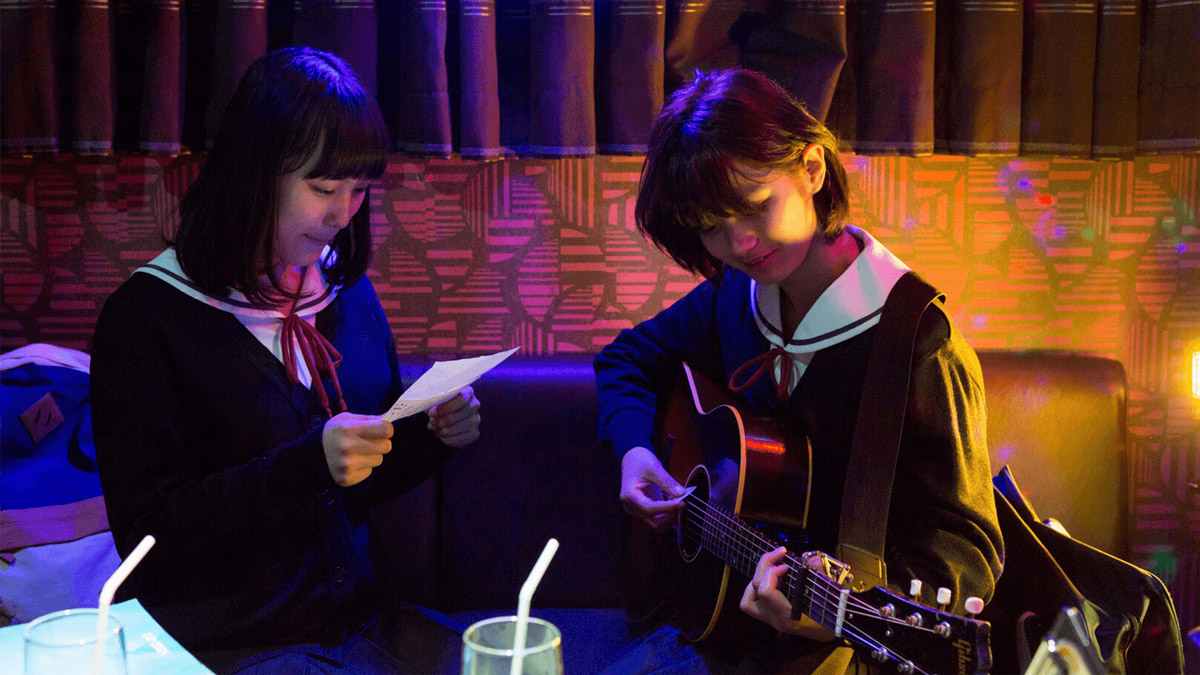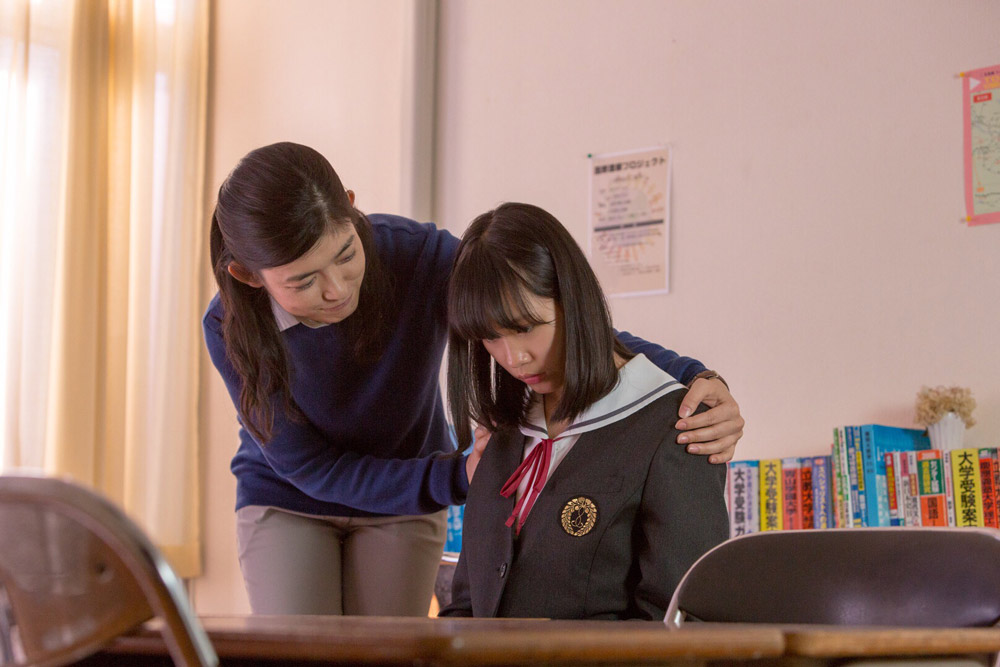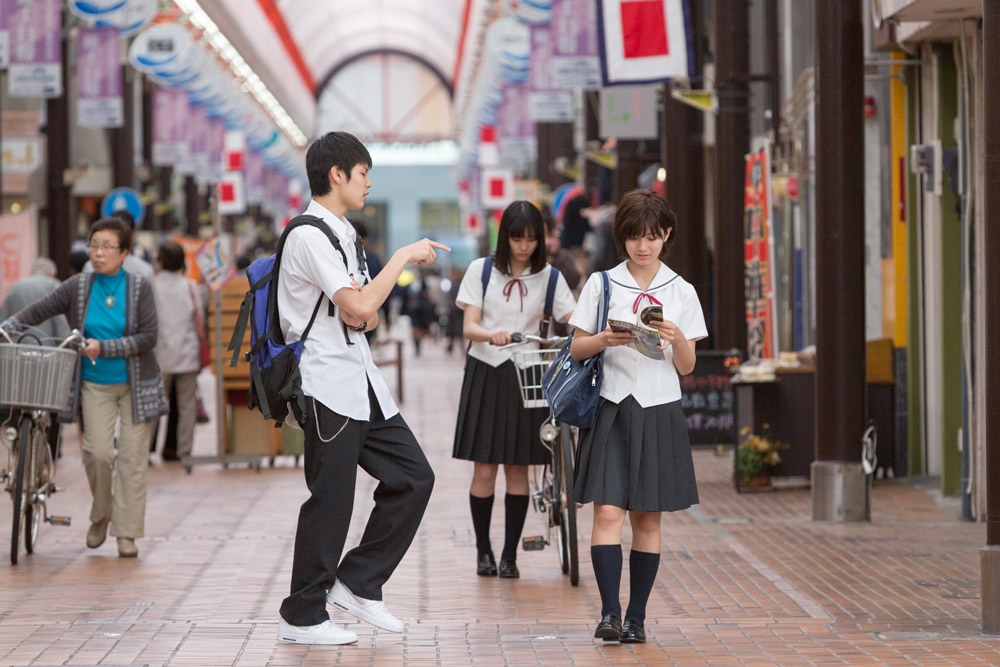
© Shuzo Oshimi/Ota Publishing ©2017 “Shino Cannot Say Her Own Name” Production Committee
“Shino Cannot Say Her Own Name” The light called “music” illuminates the clumsy youth *Note! Contains spoilers.
The organic nature of the songs in the play, the role of the accompaniment
When "Shino Cannot Say Her Own Name" was made into a movie, there were three existing songs added as songs in the movie: "Give Me Wings," "End of the World," and "Aozora." These songs can be evaluated as excellent song selections in that they have a high affinity with the worldview of the original work and ``That Wonderful Love Once Again'' and ``Magic.''
``Give me wings'', which Shino sings for the first time at Kayo's urging in the karaoke box, is also a familiar song that is choral music learned at school. It was released as the B-side of a single by the folk group Akai The Birds in 1971, the same year as "That Wonderful Love Again."
Needless to say, this song, which begs for ``give me wings'' so that I can fly ``to the free sky without sadness,'' expresses that the world is inconvenient and full of sadness. Because of the depth of their suffering, they have no choice but to long for the unrealistic means of "wings." It is thought that these lyrical elements were inherited in the lyrics of ``Magic,'' which wishes to ``give me magic,'' which would make Shino's wish to ``speak like everyone else'' and Kayo's wish to ``sing like everyone else'' come true.

“Shino Cannot Say Her Own Name” © Shuzo Oshimi/Ota Publishing ©2017 “Shino Cannot Say Her Own Name” Production Committee
Michelle Gunn Elephant's major debut song " The End of the World " (1996) is a song in which "I" anticipate a breakup with "You." The ``end of the world'' spoken by ``Kimi'' expresses the weight of loss, and the resignation to accept fate is similar to the analysis by Kitayama, the lyricist of ``That Wonderful Love Once Again.''
And “Aozora” was released by THE BLUE HEARTS in 1989. The theme of this song is clearly expressed in the chorus, ``What can you tell about me by the place I was born, the color of my skin, or the color of my eyes?'' This is a direct reaction to the reality of being discriminated against. Broadly interpreted, this is a "no" to parents, education, and society that imposes cooperation and uniformity without respecting individuality, and this is also an important element of the film.
``Aozora'' also includes the phrase ``Driver, can I get on that bus too? Anywhere I want to go is fine.'' This scene also overlaps with the final scene of the movie ``Ghost World,'' which Oshimi based on the lyric ``Let's ride the bus'' from ``Mahou.''

“Shino Cannot Say Her Own Name” © Shuzo Oshimi/Ota Publishing ©2017 “Shino Cannot Say Her Own Name” Production Committee
A song with a catchy melody and easy to sing was chosen, befitting the novice folk duo Shinokayo.In contrast, the BGM was created by Ayumu Matsuki (composition and performance) and Toru Midorikawa (music producer). is intentionally designed not to emphasize the melody. Specifically, he mainly plays chords (including dispersed chords) on an acoustic guitar or piano, and by playing long notes rather than chopping them into small pieces, he modestly conveys emotion through the sound of the chords.
This production policy is probably based on the consideration that the musical accompaniment should not be more assertive than necessary. If the background music had been more eloquent than the main melody, it might have turned into an overly staged melodrama. What flows through the center of this work is the emotions of the characters, and it is desirable that the accompaniment exists in a way that is close to that. The soundtrack, which is simple and slowly sinks into your heart, also plays an important supporting role, adding color to the atmosphere of the film.

